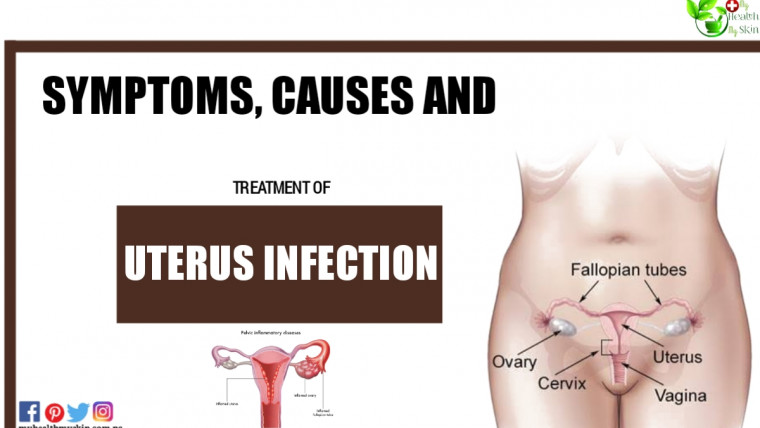In this article we are going to clarify if collagen makes you fat or if it helps you lose weight, and we are going to do it with tests so that it is very clear to you
Tendons, muscles, bones, skin, digestive digestive system, blood vessels. There we can find collagen. The most abundant protein in our body. Surely you have heard of it and even apply or consume a product that has it in its labeling as a substantial ingredient. But how much do you know about collagen? Does collagen make you fat?
In recent years, thanks to marketing, there is a marked tendency to consume food supplements that contain vitamins, minerals, proteins, extracts of superfoods and medicinal plants. In general, we acquire and consume them without stopping to analyze what the real effect of the intake of this product will be on our body.
Among the supplements that we can find in the aisles of our favorite store chain, is Collagen. The natural adhesive that helps to hold our body together and provides strength and elasticity to our skin; ridding her of the dead cells, which so many women want to get rid of.
As a consequence of the degenerative process that our body goes through over the years, the production of collagen in our body decreases.
It is when some traces of age that we would not like to see in ourselves become evident: joint pain, sagging, wrinkles, dull hair, brittle nails or nails that no longer grow as much as they used to, are some indicators of the decrease in collagen due to age.
But in addition to longevity, there are other factors that affect the loss of this protein. Lifestyle is one of them. For example, if you eat a diet rich in sugar, you are a smoker and you are exposed to the sun for a long time, you would be contributing to the reduction of your collagen levels.
On the contrary, if those who increase the qualities of collagen in your body, an effective way is to consume soups in which you incorporate beef bones. If collagen is fattening, do these sources provide us with protein as well?
If the presence of collagen in the body is vital and its gradual loss causes unwanted effects, how is it that collagen makes you fat? Or does it really not influence body weight? Let’s continue discovering this protein present in the body of almost all higher animals and many lower animals, to find out if collagen makes you fat.

KNOW THE TYPES OF COLLAGEN
Did you know that there are at least 16 different types of collagen in the human body? Yes, these types of collagen would be 1, 2, 3, 4, 5 and 10. But between 80 and 90 percent of collagen is type 1, 2 and 3. The types of collagen mentioned are used as part of the formula of certain supplements and are obtained from various food sources Do some of these types of collagen make you fat?
- Type 1 collagen. To this type of collagen we owe the elasticity of our skin; plays an important role in tissue bonding and wound healing. It is the most abundant and strongest collagen that we can find in humans; its contribution to bone formation is substantial.
- Type 2 collagen. The health of our joints depends on this type of collagen because it is what helps in the formation of cartilage found in connective tissue.
- Type 3 collagen. It teams up with type 1 collagen to help firm and supple our skin. It contributes to the formation of blood vessels and tissue within the heart.
- Type 4 collagen. The basal lamina is a thin layer made up of gelatinous fluid and is part of the tissue that surrounds the organs, muscles, and fat. This thin plate is made up of type 4 collagen and is vitally important because it surrounds the organs, muscles and fat.
- Type 5 collagen. The hair strands, cell surfaces, and placentas that provide nutrients and oxygen to the baby in the womb are made of this type of collagen.
- Type 10 collagen. Helps the formation of new bone and articular cartilage.
COLLAGEN EXTRACTION SOURCES
Foods high in protein are a source of collagen that we can obtain from our usual diet. These include beef, chicken, fish, and egg shells.
- Collagen from bovine. The skin, bone and muscles of bovines are the main source of this collagen, which is mostly type 1 and 3. It is useful for building muscle and also to help the body make its own collagen.
- Collagen obtained from chicken. Most of the collagen obtained from chicken is type 2. In general, supplements are made up of collagen extracted from chicken, which is very useful for building cartilage and provides controlitin and glucosamine sulfate, great allies against aging.
- Collagen emanating from fish. Fish mainly provides type 1 collagen. Consuming this type of collagen brings multiple benefits to the skin, vital organs and joints.
- Collagen derived from eggshell membrane. It is found in the white and in the shell of eggs. Contains collagen types 1, 3, 4 and 10; but type 1 prevails. It contributes to wound healing, building muscle mass and connective tissue. Helps reduce pain and stiffness.
There are other foods that help produce natural collagen: green vegetables, red, yellow and orange fruit; orange and tangerine juice. Omega 3 foods such as salmon and oily fish. The sulfur present in celery and cucumber olives. Also foods that contain vitamin A.
We already know that collagen is an essential protein for our health, which can be extracted from fish, chicken, cattle, among other sources. Does collagen make you fatter from animal sources?
Although it is essentially defined as a protein, it also contains essential and non-essential amino acids. Nineteen in total, among which are: Arginine, Glutamine, Glycine and Proline. These components help our body to be healthy.
Knowing the components and sources of collagen extraction is important information to determine whether collagen is fattening or not. Also if it can help you lose weight, which appears in the list of some benefits collected by consulted sources.
DOES COLLAGEN MAKE YOU FAT? ITS COMPONENTS RESPOND
The answer to whether collagen is fattening is no. This is essentially based on the fact that proteins, such as collagen, do not have the necessary elements in their composition to promote weight gain.
As collagen is made up of proteins, no matter how much we can ingest, these molecules made up of amino acids will not cause us to gain weight. So if you were wondering if collagen makes you fat, you know, it doesn’t.
The way to incorporate supplements into our regular diet is what can cause us to gain weight, as a result of being part of eating habits that degenerate into the accumulation of fluids and fats, which will make us show off the unwanted extra kilos.
If collagen does not cause weight gain by itself, it may not help you lose weight either. But on the particular, sources not based on scientific studies indicate that it could be.
His argument is also based on the structure of collagen: Collagen protein helps control appetite. Its consumption generates a feeling of prolonged satiety, greater than that caused by other proteins. What is your experience in this regard?
SOME BENEFITS OF COLLAGEN
- Beautify the skin and hair. The progressive deterioration of the skin and hair is a clear sign that we are aging and, above all, they are a sign of the decrease in collagen in the body. Collagen helps skin look firm, smooth, soft; because it activates the internal mechanisms necessary to continue renewing itself.
- Hydrolyzed collagen stimulates bone formation and increases the amount of minerals they contain. Due to these qualities, it is an element considered in the treatment of osteoporosis.
- Improves functionality and joint pain. Adding 10 grams of hydrolyzed collagen daily to our daily diet reduces joint pain and reduces the need to take medicines aimed at relieving pain.
This was the conclusion reached by a study carried out in patients diagnosed with osteoarthritis and another group of individuals who presented joint pain, derived from the physical activity carried out.
In all groups, the consumption of collagen helped reduce the thickness of the joints and improved their mobility and function. (Study 1)
- Stimulates cardiovascular health. Collagen contains an amino acid called Proline, which helps keep the walls of the arteries clean by eliminating the fat accumulated in them. It also helps keep your blood pressure under control.
- Helps to keep eliminating toxins. The glycine present in collagen helps to expel toxins and other substances foreign to the liver.
- Stronger nails, hair and teeth. Being part of the daily diet, collagen could help to have strong nails and stop hair loss.
- Increase in muscle mass. One of the traces that aging leaves us is the loss of muscle mass. The glycine present in collagen could help build muscle tissue through the conversion of glucose into energy that fuels the muscles. (Study 2)
- Healthy skin. Adding collagen to our usual diet contributes to improving the appearance of the skin, making it more elastic and smooth, thanks to the fact that it increases its level of hydration and density.
A study carried out in healthy postmenopausal women, who were given hydrolyzed collagen for three months, made evident the improvement in the length, depth, surface and total number of wrinkles. The collagen intake also turned out to be effective against photo aging. (Study 3)
SOME SIDE EFFECTS OF COLLAGEN
We already know that taking collagen as a dietary supplement can be beneficial for your health. But since everything is at least two-sided, there are side effects associated with taking collagen regularly.
1. Increase in calcium levels. Collagen supplements made from marine species could be responsible for this ailment. Which manifests itself with fatigue, nausea, vomiting and cardiac arrhythmia.
2. Allergies. Allergic reactions to collagen ingested as a supplement occur when it is administered via injection. Or if the user of the supplement is a child. In these cases, it is advisable to carry out allergy tests prior to the administration of the protein.
3. Unpleasant taste. In the market there are oral collagens in stock with an unpleasant smell and taste, which remains on our palate. To avoid this inconvenience, we can mix it with fruit juices or other preparations with a more pleasant taste.
CONCLUSIONS TO COLLAGEN MAKES YOU FAT
Collagen is a vital protein for the proper function of our body. It is not for nothing that nature arranged for it to be present in our body in large quantities.
Due to our lifestyle and age, collagen production declines. This results in chronic pathologies that could compromise our mobility. The reduction in the levels of collagen production is also evidenced in the much dreaded appearance of the signs of aging, such as dryness and furrows in the skin.
Sure, we can help our body by taking supplements of this protein. But, there is an important point that we must take into account: What happens inside our body is involuntary; we have no direct decision on it. The body will use the nutritional components ingested where it should.







